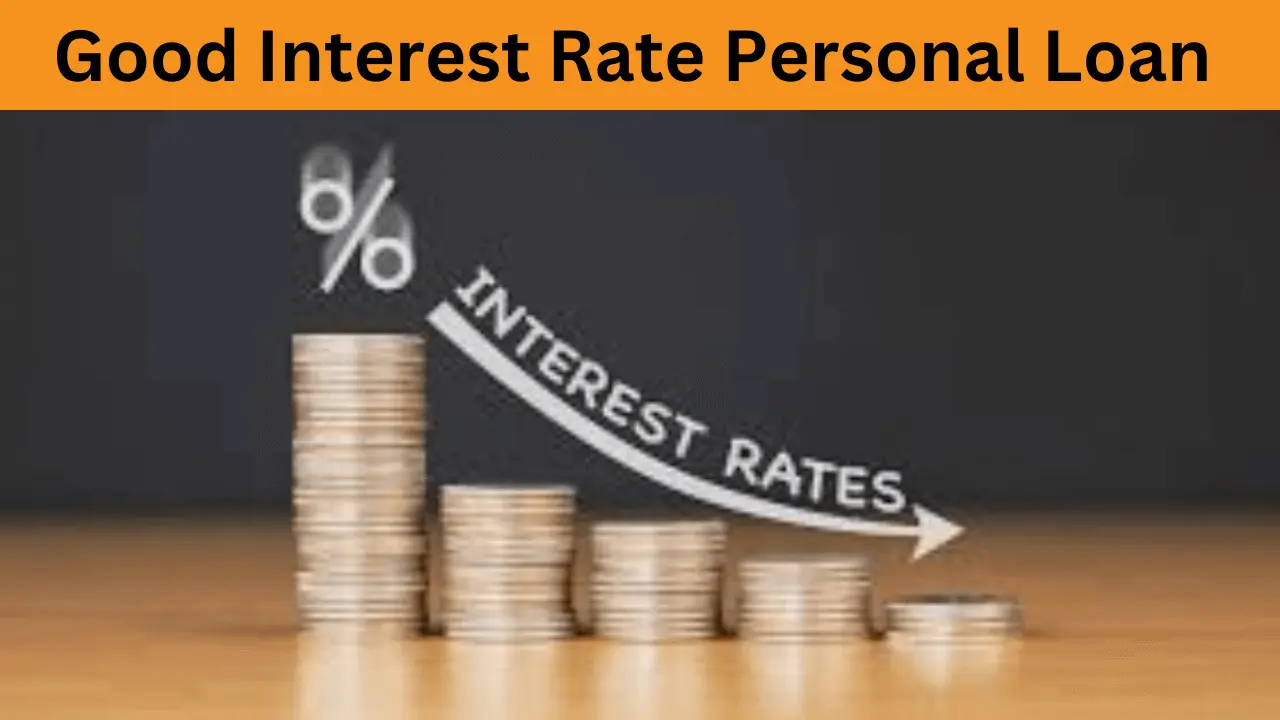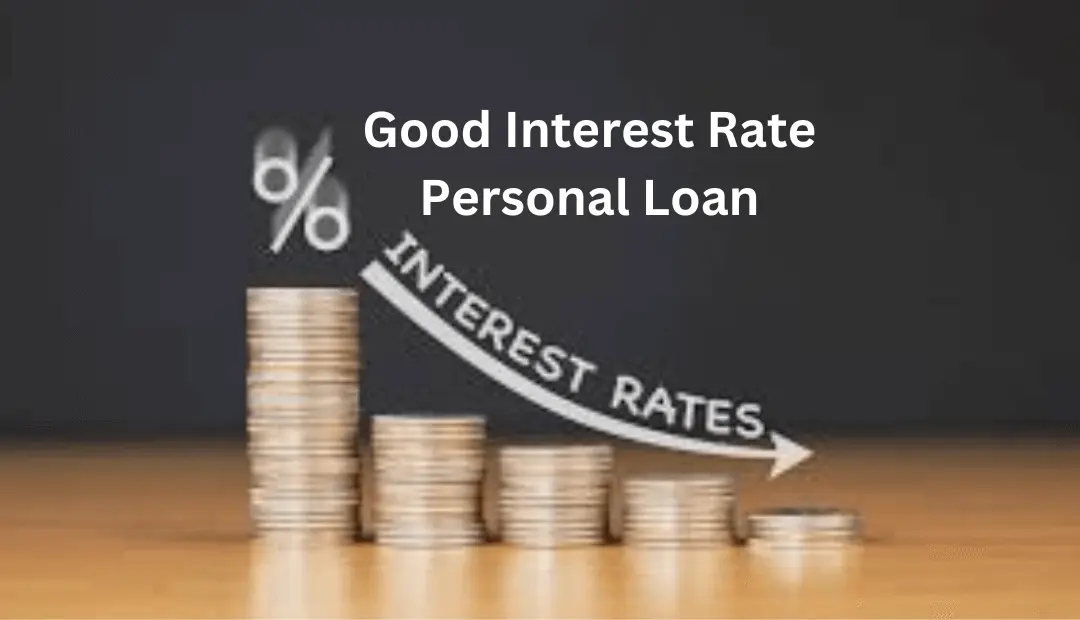Good Interest Rate Personal Loan What Is It?
Good Interest Rate Personal Loan
Good Interest Rate Personal Loan: Interest rates on personal loans should ideally be lower than the national average, which as of Q3 2023 is 12.17%. That average may change over time because interest rates might change depending on various circumstances, including the state of the economy.
Getting ready before applying for a personal loan is crucial because it will determine the interest rate you qualify for, among other things.
Also Read: Capital One Personal Loan With Fair Credit?
What Is a Personal Loan’s Average Interest Rate?
The Federal Reserve estimates that as of Q3 2023, the average interest rate for a two-year personal loan is 12.17%. However, personal loan interest rates often range from less than 6% to 36%, depending on the lender, the borrower’s credit score, financial status, and other criteria. Higher interest rates aren’t unheard of in places where they are permitted.
To better comprehend how much your monthly loan payments will be and how much you will pay overall, it’s crucial to grasp how personal loan interest rates operate.
What Ingredients Affect Interest Rates on Personal Loans?
Personal loan lenders determine your interest rate based on a risk-based methodology, which takes into account your likelihood of defaulting on the loan.
In light of this, the following are some variables that may affect interest rates on personal loans:
- The lender: Every lender sets their interest rate requirements and standards for figuring out which rate you are eligible for. For this reason, when you browse around and compare loan offers, you can receive a wide range of rate quotes.
- Market conditions: The prime rate, which lenders frequently use to set their rates, is impacted by choices made by the Federal Reserve about the federal funds rate. The interest rates on personal loans usually fluctuate in tandem with changes in the federal funds rate.
- Credit score: While individuals with varying credit scores can apply for personal loans, interest rates are generally lower for those with higher credit ratings.

Details from your Good Interest Rate Personal Loan
- Details from your credit report: Your credit score gives you a general idea of how well your credit is doing, but it doesn’t give the whole picture. Your credit reports may also be examined by lenders for things like late payments, large credit card balances, recent credit inquiries, and other things that could indicate risky credit conduct.
- Loan amount: If you default, the lender has a greater degree of risk the more you borrow. greater loan amounts may therefore have greater interest rates.
- Repayment period: Due to interest rate risk, longer loan repayment times are usually associated with higher interest rates. Put another way, if interest rates rise after the lender pays out your loan, it will take longer for it to benefit from the increase than if your term were shorter.
- Debt-to-income ratio: A minimum income requirement is usually imposed by lenders. To ascertain if you can afford to take on a new loan, the lender will also look at how much of your gross monthly income is allocated to debt. Generally speaking, interest rates rise with increasing debt-to-income ratios.
- Collateral: A savings account, certificate of deposit, or other asset may be used as collateral for a secured personal loan offered by certain lenders. The collateral may be seized by the lender to pay off the loan if you default. If you don’t have any assets that can be used to secure the loan, secured personal loans might not be a choice for you. However, they usually have lower interest rates.
How to Evaluate Individual Loans
To ensure you are receiving the greatest bargain, shop around and compare offers from other lenders.
Thankfully, prequalification is the procedure by which some lenders allow you to estimate your interest rate without requiring a complete application. A soft inquiry is the consequence, and it has no bearing on your credit ratings.
Before submitting an official application, you can obtain quotes from several lenders and compare loans by prequalifying with them.
When evaluating proposals, contrast the following:
- The annual percentage rate, or APR, shows the overall cost of your loan by including both your interest rate and other expenses. It’s probably the most crucial piece of knowledge to have when doing a comparison shop.
- Loan term: This is how long the loan will take to pay off, expressed as the total number of installment payments. Lower APRs are usually the consequence of shorter loan terms.
- costs: Recognize the origination, late, and other costs assessed by each lender. Primarily, there is the origination charge, which can be anywhere between 1% and 10% of the loan balance. However, some lenders don’t impose one at all.
- Monthly payment: It’s crucial to know how much you’ll pay each month and whether it fits into your present budget, in addition to the APR and loan length. Make sure you have enough money each month to pay off your other bills in addition to your living needs.
- Discounts available: If you set up automatic payments or obtain a loan from a bank or credit union where you already have accounts, you may be able to cut your rate.
Personal Loans’ Effect on Your Credit Score
Personal Loans’ Effect on Your Credit Score
A personal loan can have a variety of effects on your credit score, and its long-term effects can either improve or worsen your credit depending on how you handle the debt.
- Credit inquiry: Filing an official application will result in a hard inquiry, which can have an impact on your credit score, even though prequalification won’t. According to FICO, each new query often lowers your credit score by less than five points, but a large number of queries made quickly can have a compounding effect.
- The amount owed: Your credit score is also influenced by the amount you owe. Depending on how much you borrow and how it stacks up against the rest of your debt, a new loan may temporarily lower your score.
- Credit history length: Opening a new credit account decreases the average age of your existing accounts, which may result in a brief drop in your credit score. Eventually, nevertheless, a high average age of accounts may prove advantageous.
- Payment history: Your FICO® ScoreTM is primarily based on your payment history, so if you pay back all of your loans on schedule, the loan will gradually raise your score. However, the loan may cause long-term harm to your credit score if you skip one or more payments.
Think About How the Loan Will Impact Your Budget
It’s critical to understand the interest rate on a personal loan that you should aim for and what your credit profile will likely result in. Making sure a personal loan is the right choice for you and that you can afford the monthly payment for the duration of the loan term, however, is even more important. Handle your loan carefully to put yourself in the best possible position to later receive low-rate offers for additional financial products.






